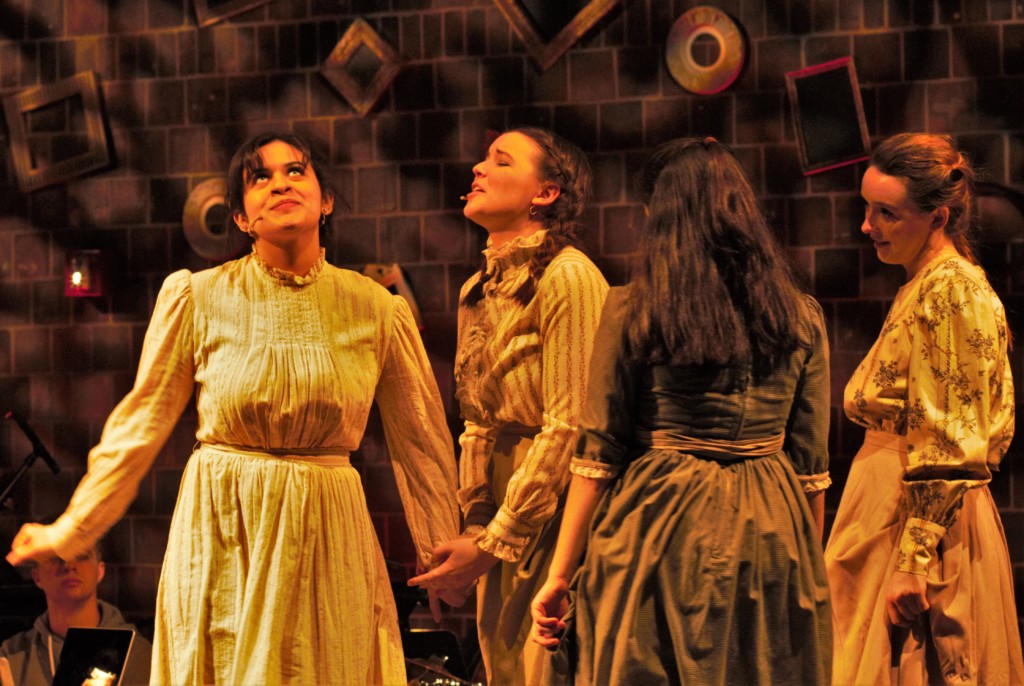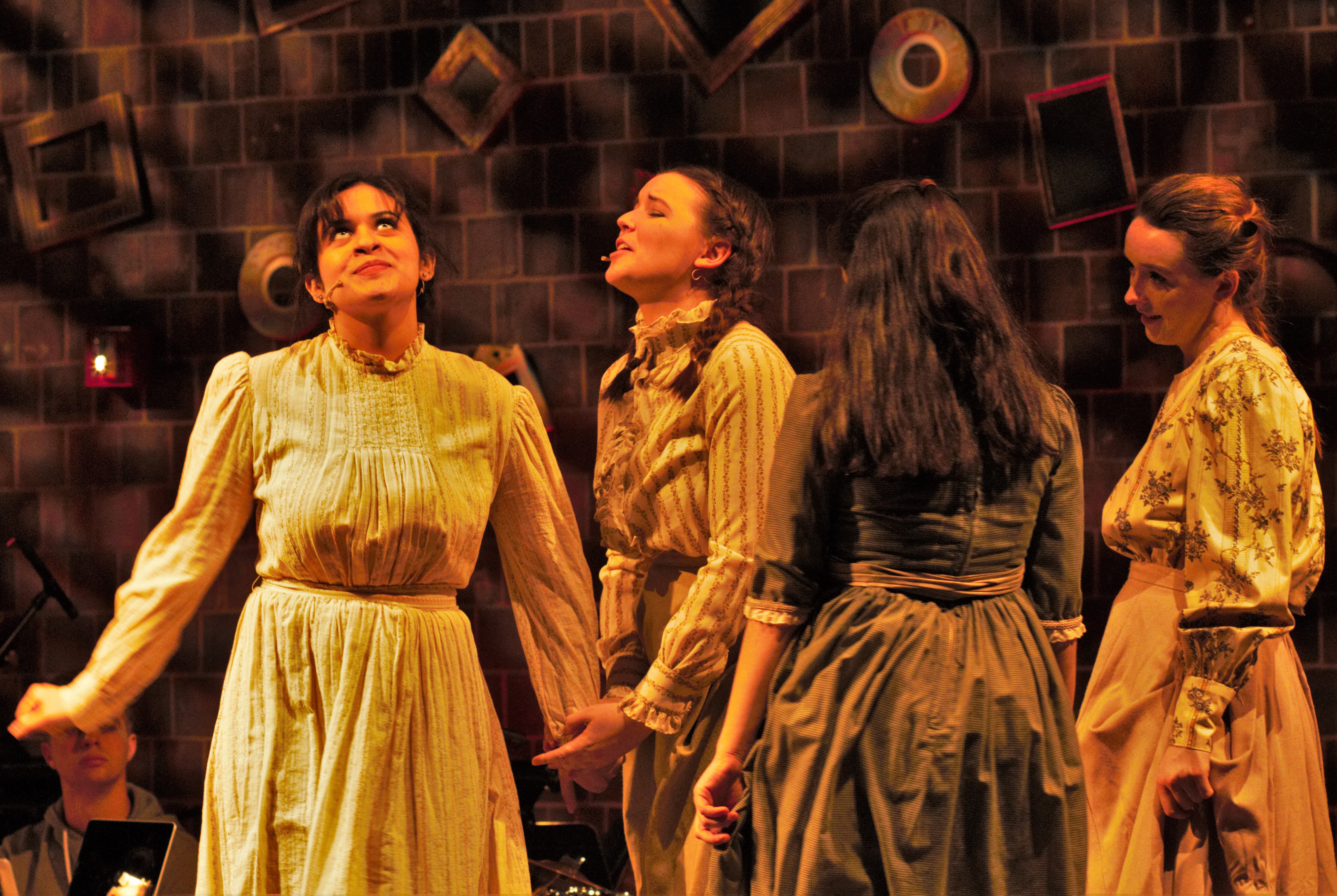The May Room in Wilson Commons is an interesting place to stage a musical because it doesn’t seem built for them.
It’s small (compared to something like Strong), and its stage is an elevated platform, also small, with no curtains. But necessity is the mother of invention, as the ROC Players proved in the finer moments of their production of Duncan Sheik and Steven Slater’s 2006 musical “Spring Awakening” last Friday.
“Spring Awakening,” which could conceivably be renamed “Screw You, Mom,” is about teenagers in late 19th century Germany discovering sexuality and the conflicts that arise between their parents and teachers. Caught in the middle of things are intelligent rebel Melchior (senior Justin Maldonado), the anxious Moritz (sophomore Casey Brentnall), and the smart, curious Wendla (junior Maddy Gartenberg).
In terms of the performances and casting, the play was excellent. Maldonado, as an actor and vocalist, topped his work in the Players’ previous show, “Into The Woods,” by a mile or so. (He also gets to do a lot more.) Gartenberg delivered pain and honesty in her role, and Brentnall went from funny to sympathetic to tragic as a sexually unaware dunce.
The story of “Spring Awakening” never quite comes together, and the Players’ production of the show exceeded the show’s script. A few plot elements and character choices seem to come out of nowhere, and the play takes a very adolescent, black-and-white stance on the conflict between teenagers and adults. Theater, and in particular musical theater, is a very empathetic medium — when done well, you feel everything along with everybody in the play. This is why I wish the play spent a little more character development time with some (or at least one) of the adult characters, played by sophomore Ewan Shannon (who played all the adult men) and first-year Alyssa Nelson (who played all of the adult women). Shannon played a handful of different atrocious men and was particularly nasty as the instructor at a boys’ school. Nelson, given a far greater opportunity than her stepsister role in “Into The Woods,” played each woman with equal skill, variety, and personality that maintained clarity throughout the role juggling. It was her performance that made a friend tell me that, in a late scene when Wendla’s mother finds a love letter to her daughter, that he was eager to hear the mother begin to sing. That song never happened, and we never got her perspective, but Nelson’s performance filled in as much as it could where the playwriting falls short.
But if the play as a whole doesn’t fully work, the majority of the individual scenes did in this performance. One happily sweet and funny scene involved a gay romance between the gung-ho, egotistical Hanschen (senior Grant Sorbo), and the timid, childlike Ernst (first-year Jonathan O’Brien). Another well-done scene, though far more painful, was a powerful duet between Martha (senior Andria Rabenold) and Ilse (junior Jane Huffer), called “The Dark I Know Well,” about the physical and sexual abuse they had suffered at the hands of their fathers.
The creative way that the play was put together in terms of choreography, set design, staging, and lighting is one of the main attractions here. The stage was somewhat limiting, but choreographer junior Charlotte Pillow worked well with what’s given. This is particularly true in the show’s fourth song, “The Bitch of Living,” which involved about nine actors with stools. The lighting design, by senior Emily Ivey and first-year Michael Wizorek, and set design, by sophomore Victoria Bebber, worked together wonderfully, changing scenery by casting new shadow. The lighting was most stunning in the song “The Guilty Ones,” where an overhead light seemed to travel around the cast. The light throbbed on one actor once and then moved to the next, and the next, and the next. It was a mesmerizing accompaniment to a moving song.
Another touching sequence was a love-making scene done with two actors onstage, with the rest of the actors singing in the aisles. Putting actors where the audience is has always been a massive pet peeve of mine, but, for whatever reason, I found it stunningly beautiful in this play’s context. The sex in this play was not weirdly forced or unintentionally funny (as staged sex almost always is), but emotionally genuine and beautiful. Staged sex is a lot like mac salad: It’s really easy to do it badly, and when done badly there’s really nothing worse. Somehow, director junior Rachel Coons and the Players managed to pull it off.



